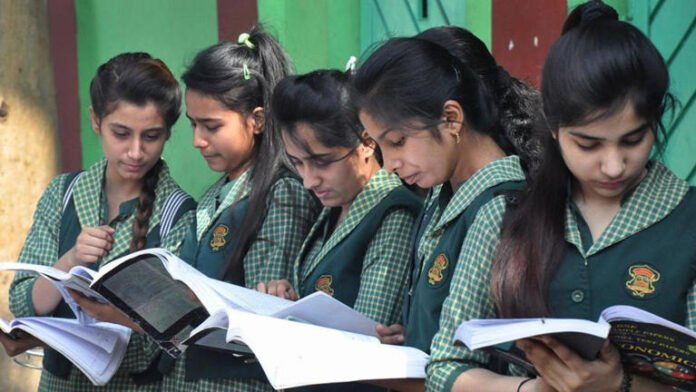The state government has announced the cancellation of the remaining Class 11 board examinations. The decision comes in light of the upcoming Panchayat elections, which are scheduled to take place in various parts of the state. As a result, students who were slated to appear for the remaining exams will now be relieved of their academic responsibilities for this term.
The decision has sparked mixed reactions among students, parents, and educational authorities, with some expressing relief, while others are concerned about the implications for the academic calendar. The state government’s swift move is seen as an effort to ensure that the Panchayat elections, a crucial democratic exercise, are not disrupted by educational activities. At the same time, the cancellation raises important questions about how students will be assessed and what the long-term impact on their academic progress will be.
Reasons for the Cancellation of Exams
The primary reason behind the cancellation of the remaining Class 11 exams is the looming Panchayat elections, which are expected to require a significant amount of public infrastructure, personnel, and resources. The government believes that holding the exams during this critical period could create logistical challenges, potentially causing disruptions to both the electoral process and the smooth functioning of educational institutions.
Assam, like many other states in India, faces challenges in coordinating exams, elections, and other major events simultaneously, especially when resources such as teachers, polling staff, and examiners are in high demand. Given the importance of the Panchayat elections, which are a vital component of the democratic process at the grassroots level, the government opted to prioritize electoral duties over conducting exams. This ensured that the examination process would not clash with election preparations, including setting up polling stations, transportation of voting materials, and deployment of security forces.
Impact on Students and Parents
The decision to cancel the exams has brought a sense of relief to many students, particularly those who were anxious about the ongoing examinations amid election-related disruptions. With the exams now off the table, students will no longer have to juggle their academic responsibilities with the logistical issues surrounding the elections, such as transportation and public safety concerns.
For parents, the cancellation may offer some respite as well. With fewer events competing for attention, many parents are relieved that their children can now focus on their studies without the added pressure of preparing for exams under uncertain conditions. Additionally, the timing of the announcement, made well in advance of the scheduled exams, has allowed families to adjust their plans accordingly.
However, not all reactions have been positive. Some students and educators have raised concerns about the cancellation’s impact on the overall academic progress of Class 11 students. For students preparing for higher secondary exams or college admissions, missing out on exams for this academic year could create a gap in their education, leading to potential delays in completing required coursework.
Educational experts also worry that such disruptions could set a precedent for future interruptions in the academic calendar, potentially affecting students’ learning outcomes in the long run. The cancellation may create a sense of uncertainty for students, especially those who rely on these exams for gaining a clear understanding of their academic standing.
Alternative Evaluation Methods
In the absence of exams, questions have arisen about how students’ academic performance will be evaluated. Assam’s education department has yet to finalize the specifics, but it is likely that the state will rely on internal assessments, project work, and teacher evaluations to gauge students’ progress. Many believe that this shift to alternative methods of evaluation could provide an opportunity to reduce the pressure of traditional exams and focus more on continuous assessment.
Internal assessments allow for a more holistic approach to evaluation, as they take into account students’ performance over an extended period rather than their ability to perform on a single exam day. However, critics argue that relying solely on internal assessments could lead to inconsistencies in grading and might not adequately reflect the students’ overall capabilities.
Challenges and Long-Term Implications
While the cancellation of exams has been a necessary step in light of the Panchayat elections, it presents several challenges that will need to be addressed by the education department. One of the major concerns is the potential delay in the academic schedule, as exams are often a key step in preparing students for the next academic year.
Further, the lack of exams could affect the competitive examination preparation for students who aspire to pursue higher education in fields such as medicine, engineering, and law. Many students use board exams as a benchmark for college admissions, and without exams, the criteria for selection could become unclear.
Additionally, the overall learning experience could be compromised if students feel disengaged or demotivated due to the sudden changes in their academic routines. For many students, exams serve as a motivational tool, encouraging them to push themselves and assess their knowledge. Without exams, students may miss out on this crucial aspect of academic growth.
A Necessary Yet Disruptive Move
The decision to cancel the remaining Class 11 exams in Assam is undoubtedly a response to the logistical challenges posed by the upcoming Panchayat elections. While it provides immediate relief to students and families, it also raises important questions about how education systems can maintain stability and consistency amid external disruptions.
In the short term, the cancellation allows the government to prioritize the elections, ensuring that the democratic process runs smoothly. However, the long-term effects on academic calendars and students’ overall learning outcomes will need careful monitoring. As the situation unfolds, it is likely that the Assam education department will continue to evaluate alternative methods of student assessment and find ways to mitigate any negative impact on academic progression.
Ultimately, the move underscores the importance of adaptability in the face of unforeseen events, and how governments must balance educational priorities with the needs of the democratic process.


